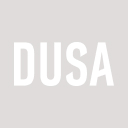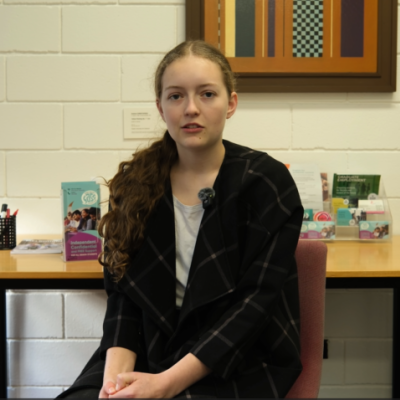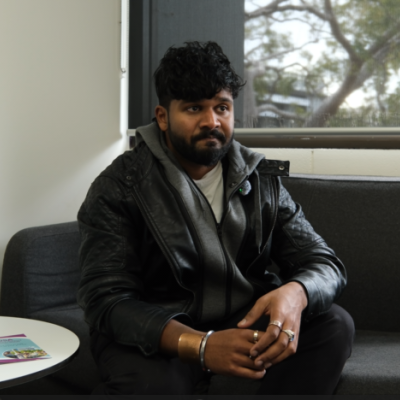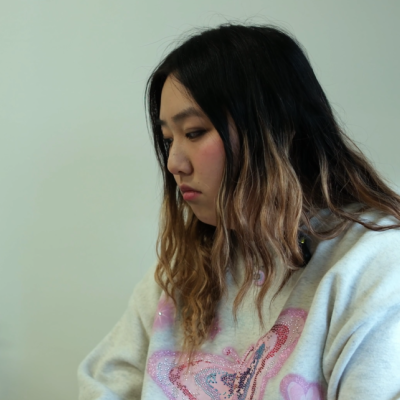
${item.excerpt}
Featured in ${item.section}

${item.excerpt}
Featured in ${item.section}




A student's personal circumstances can affect their ability to complete assessments ethically. Could this happen to you?
The Student Advocacy and Support Service 2025 Academic Integrity Awareness Campaign ‘It could happen to you’ highlights that personal circumstances can affect your studies, and it’s important to know what support and services are available before making a decision you might regret later.
Copying someone’s assessment, asking someone to complete part of your assessment, inappropriately using Generative Artificial Intelligence, falsifying references, fabricating assessment data, and editing the dates on a medical certificate are all examples of breaching academic integrity, and can have severe consequences.
Most students don’t set out to breach academic integrity. However, when impacted by personal circumstances, a student’s decision making can become impaired, which may lead to choices that they wouldn’t normally make.
This campaign included real stories from students who breached academic integrity, and an activity for students.
These stories explored the students’ circumstances, what lead up to the breach of academic integrity, and the impact the outcome had on their lives.
Episode 1: The Weight of Desperation
Episode 2: Losing My Voice to AI
Episode 3: The Cost of Hiding
Episode 4: The Requirement
Episode 5: The Price of Survival
In total, 1,241 Deakin University students participated in DUSA’s 2025 Activity. 650 students participated online and 591 students participated on campus.
Students were asked ‘What do you think the outcome should be?’ and ‘What would you do differently?’ in one of the below scenarios:
"I was really sick and needed to apply for an assessment extension. I did not know how to book a doctor's appointment, so I used a medical certificate that I found online. Deakin contacted the Medical Centre and found out that the medical certificate was fake."
Zero marks for the Assessment is the current Standard Outcome for this scenario according to Deakin’s Schedule A. Less than half (41%) of student participants thought this should be the Standard Outcome. 44% of student participants thought the Standard Outcome for Scenario 1 should be more lenient than Zero marks for the Assessment, and 15% thought the Standard Outcome should be more severe.
Themes of what students would do differently included seeking guidance from Deakin staff, finding how to obtain an authentic medical certificate, contacting their Unit Chair for advice, and/or submitting the assessment late without a certificate.
"I was on an unpaid placement and had to work to pay for rent. I had no days off. I was exhausted and fell behind in my assessments. I asked Generative Artificial Intelligence for some references to help me get started on my assessment. I did not check if the references were real. They were fake. Deakin found out."
Zero marks for the unit is the current Standard Outcome for this scenario according to Deakin’s Schedule A. Only 13% of student participants thought the Standard Outcome for Scenario 2 should be Zero marks for the Unit. Most (80%) student participants thought the Standard Outcome for Scenario 2 should be more lenient and 7% thought the Standard Outcome should be more severe.
Themes of what students would do differently included applying for an extension or special consideration, seeking support with time management, checking references before submitting, avoiding using GenAI and/or submitting late.
"I got really bad marks in my first assessment and my parents were so disappointed. I promised to do better. I had to do well on the exam. I got stuck on the last question and time was running out. I asked Generative Artificial Intelligence for the answer. Deakin found out."
Zero marks for the unit is the current Standard Outcome for this scenario according to Deakin’s Schedule A. Only 15% of student participants thought the Standard Outcome should be Zero marks for the Unit. Most (81%) student participants thought the Standard Outcome for Scenario 3 should be more lenient and just 3% thought the Standard Outcome should be more severe.
Themes of what students would do differently included answering the exam questions themselves without using GenAI, skip answering the question, seeking support, and preparing more for the exam.
The possible outcome options for each scenario were:
If circumstances are impacting your studies and you’re not sure what help is available, reach out to the Student Advocacy and Support Service. If you have concerns that you may have breached academic integrity, please also contact the Student Advocacy and Support Service. An Advocate can discussion your options with you and provide you with confidential advice.
